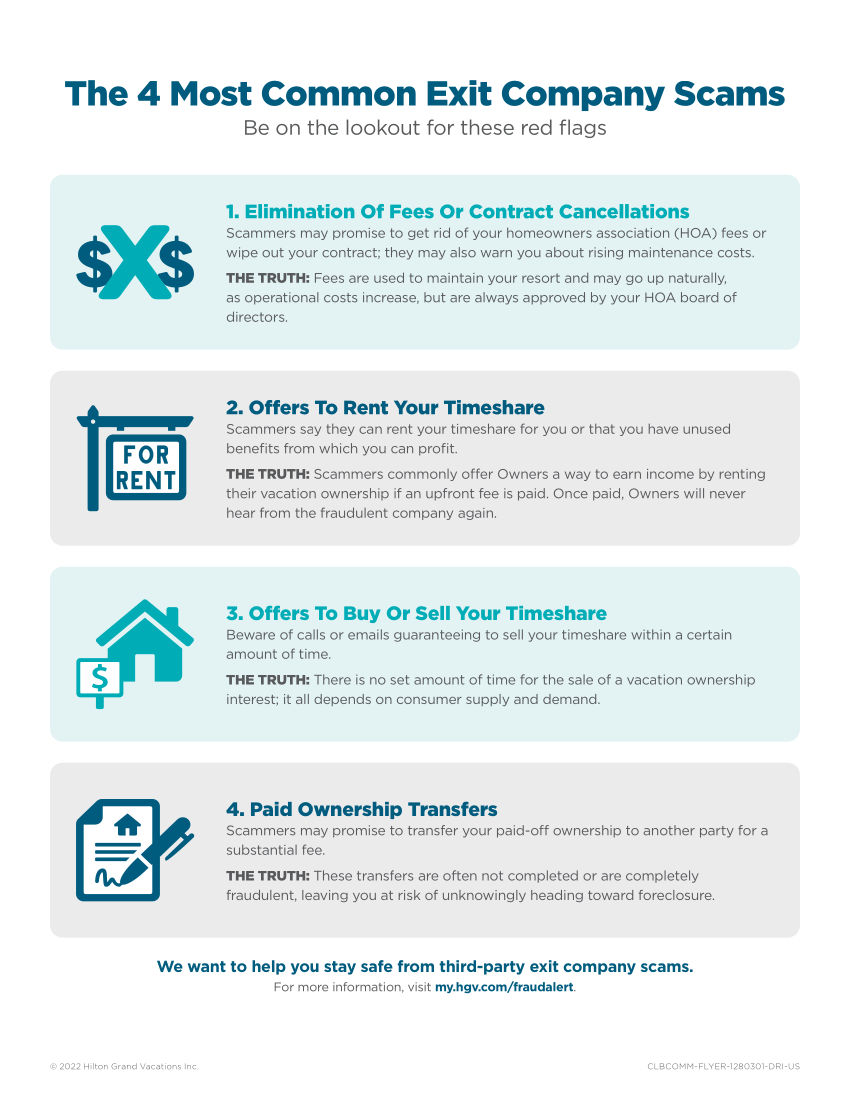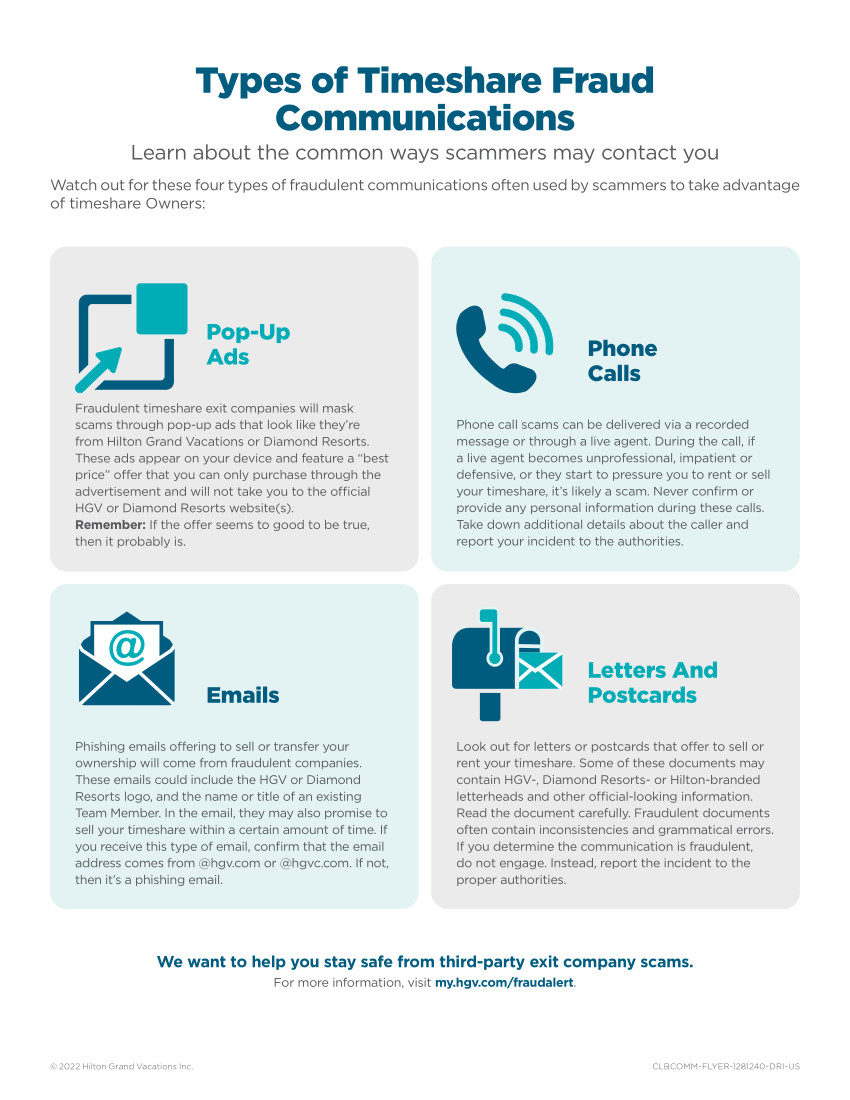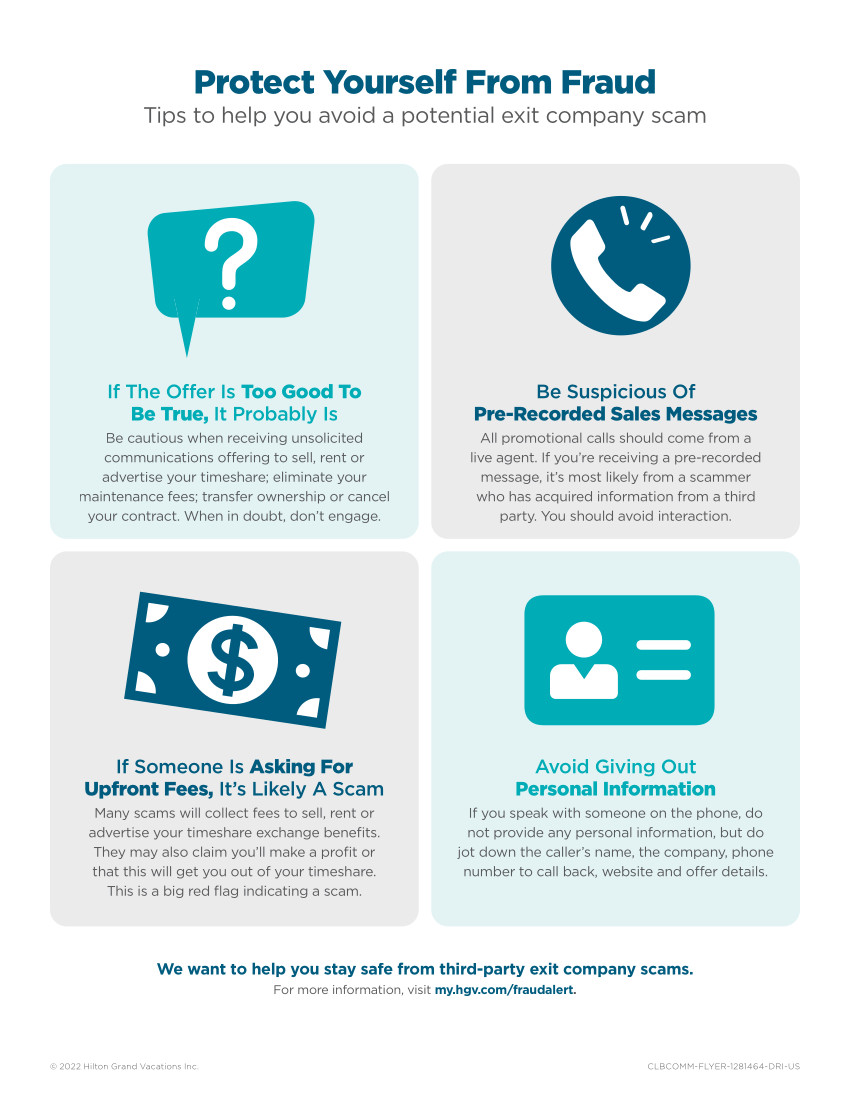You are here
MemberSite_XML_Dynamic_USA_fraud-protection
Unscrupulous third parties are increasingly trying to defraud consumers, specifically timeshare Owners. These fraudulent timeshare schemes often say they can rent, sell or advertise your timeshare exchange benefits, or may even claim you have weeks, certificates or points you have not used and they can help sell on your behalf. The good news is these scams often follow the same patterns and use similar tactics. There are ways to protect yourself from these scams, and the first step is knowing how to identify them. Read below for tips on how to identify fraudulent offers and common scams, educational tools and resources and how to report incidents. Tips to Identify a Fraudulent Timeshare Scam Common Fraudulent Schemes Click on the images and watch the video below to learn how you can protect your timeshare exchange benefits and get more information about the common scam tactics. Protect Yourself: How to Recognize and Avoid Timeshare Fraud [ENG CC] from Hilton Grand Vacations on Vimeo. Educational Tools & Resources Following is a list of educational tools and other resources for more information on the topic: Reporting Timeshare Fraud If you are a victim of a fraudulent timeshare scheme or have received deceitful solicitations, follow the steps below: Remember: Always be vigilant about any unsolicited offers to sell, rent or advertise your timeshare and reach out to us immediately for any questions or concerns. ]]>
]]>



]]>
]]>
| Attachment | Size |
|---|---|
| 121.31 KB | |
| 33.73 KB | |
| 167.51 KB | |
| 31.75 KB | |
| 34.83 KB | |
| 157.95 KB |
